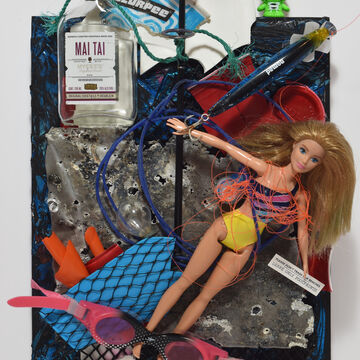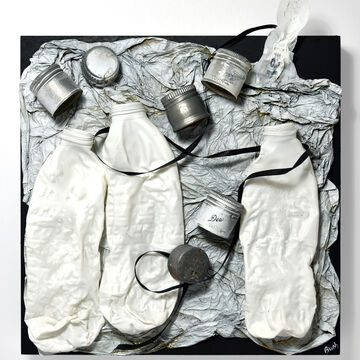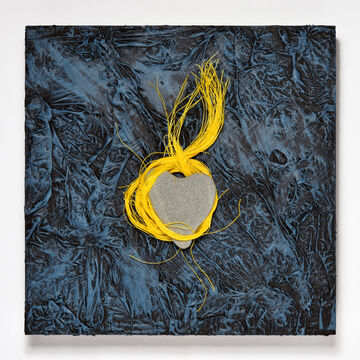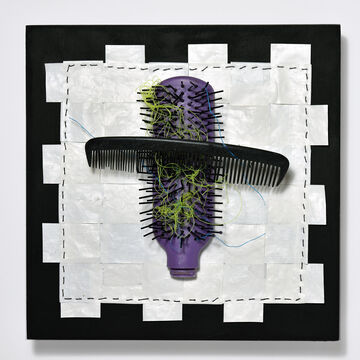Preserving the natural beauty of Cape Hatteras National SeashoreTRASH REMOVED TO DATE: 954.24 LBS

Leave Only Footprints
The Outer Banks is one of the top beach vacation destinations in the U.S. While you're enjoying your time here, please remember that litter, especially plastic, is a major threat to our beaches and the ocean. It's not just an ugly sight, it's harmful to sea animals, birds, and fish. Please take everything from the beach that you take to the beach.
Leave only footprints!
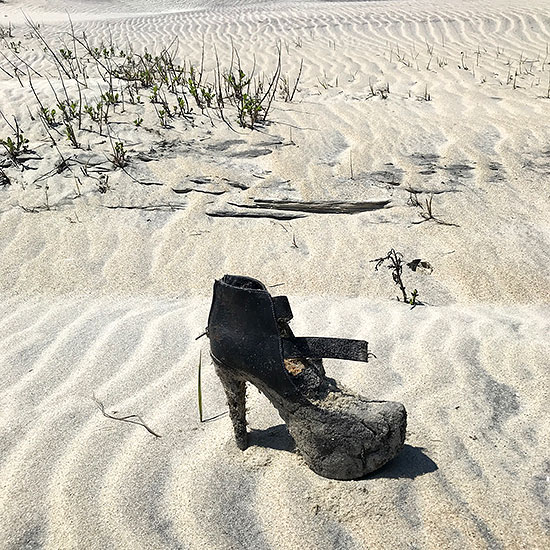
WHAT WE DO
While we beachcomb for treasures and watch dolphins surfing, pelicans defying the breaking waves, and gulls laughing at whatever it is they laugh at, we pick up trash along the way and anything that doesn't belong. Some of the "best looking" trash is being recycled into artworks for sale, turning something bad into something good. Our actions will generate multiple good consequences - yours can too! More ⋙
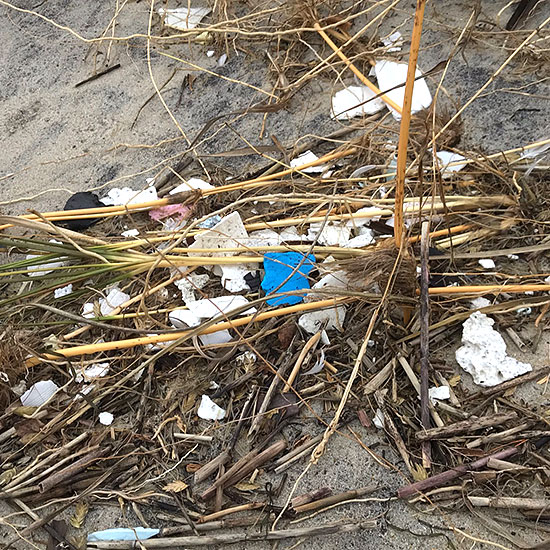
YOU CAN HELP
On your next visit to the beach, simply remove even one thing that doesn't belong there. It's ok to start small. Everyone has the ability to change the world for the better, one small step at a time. Pick up one piece of trash every time you walk the beach and you're making a difference. You won't save the beach by your actions alone, but you'll help to preserve and protect it, and maybe inspire others to do the same.
It starts with one person... More ⋙
BEACH TRASH
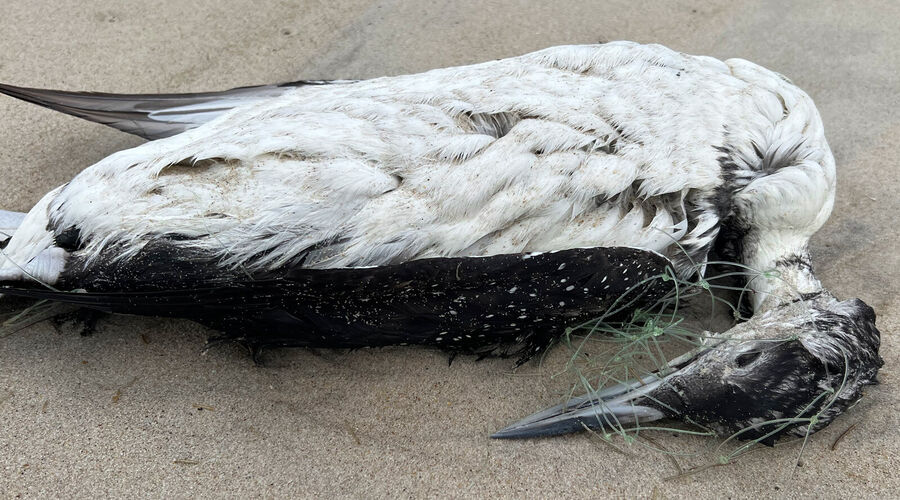 It was distressing to come upon this loon tangled in fishing line - its plight is part of the reason for our mission. Abandoned fishing gear is one of the deadliest forms of plastic debris for marine life.[1]
It was distressing to come upon this loon tangled in fishing line - its plight is part of the reason for our mission. Abandoned fishing gear is one of the deadliest forms of plastic debris for marine life.[1]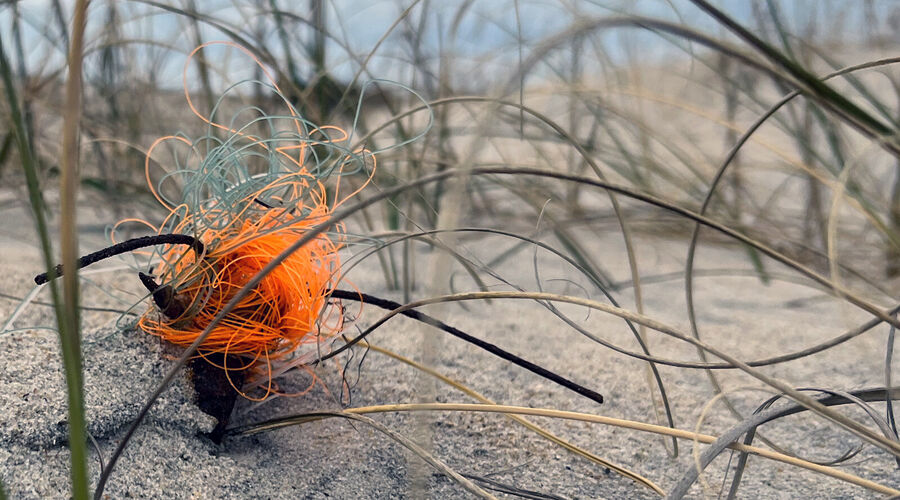 Fishing line is a death trap.[2]
Fishing line is a death trap.[2]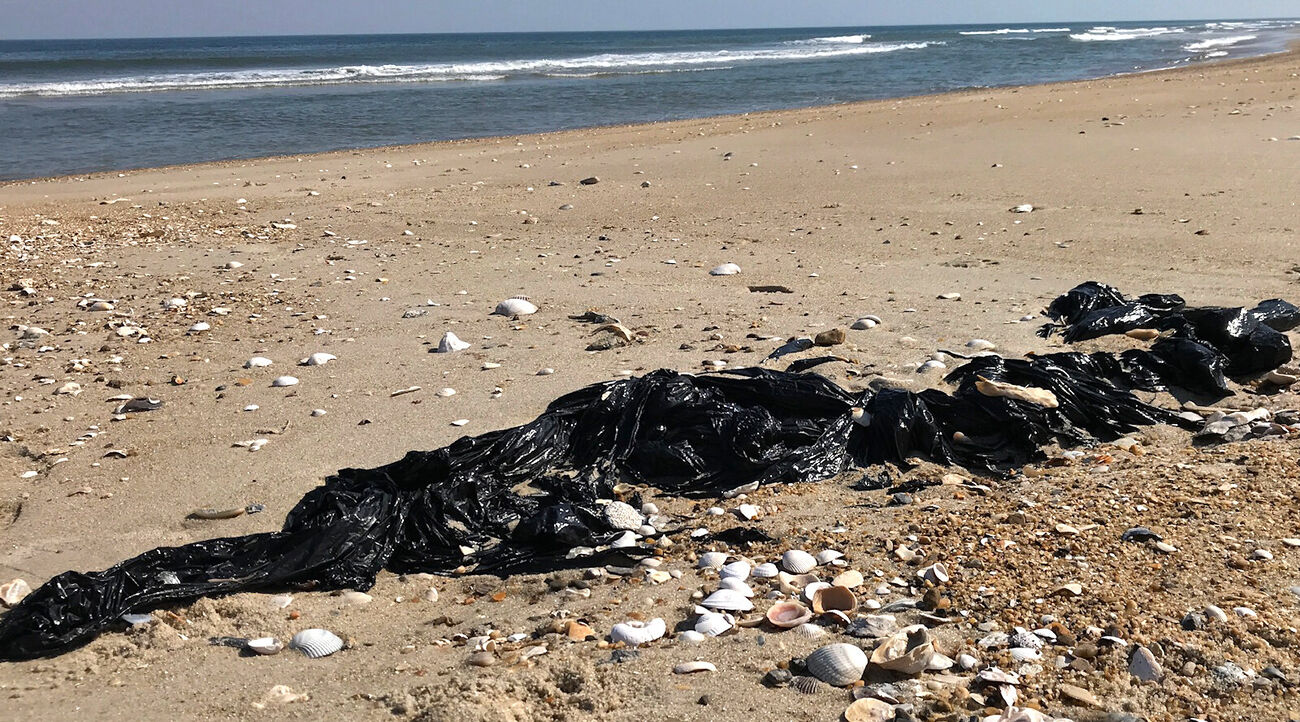 73% of all beach litter is plastic.[3]
73% of all beach litter is plastic.[3]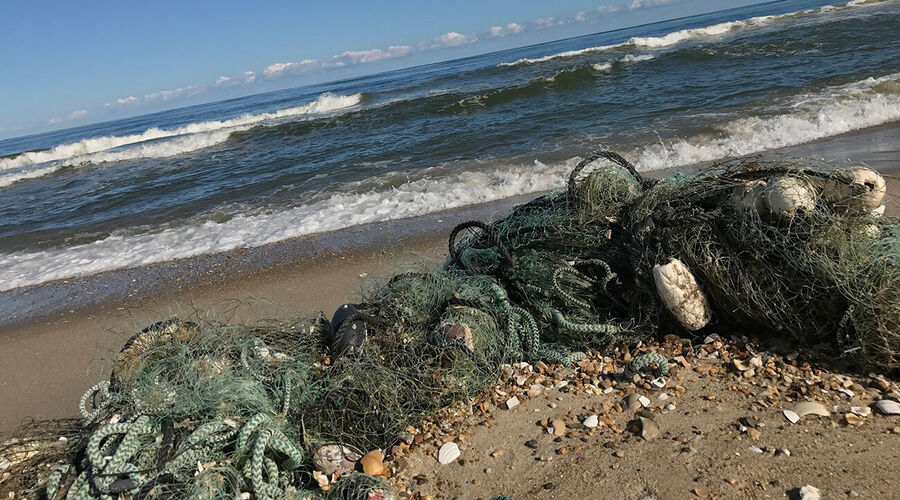 Ghost net. A fishing net that's been lost or abandoned in the ocean. Ghost nets entangle sea turtles, dolphins and porpoises, birds, sharks, seals, and more.[4]
Ghost net. A fishing net that's been lost or abandoned in the ocean. Ghost nets entangle sea turtles, dolphins and porpoises, birds, sharks, seals, and more.[4]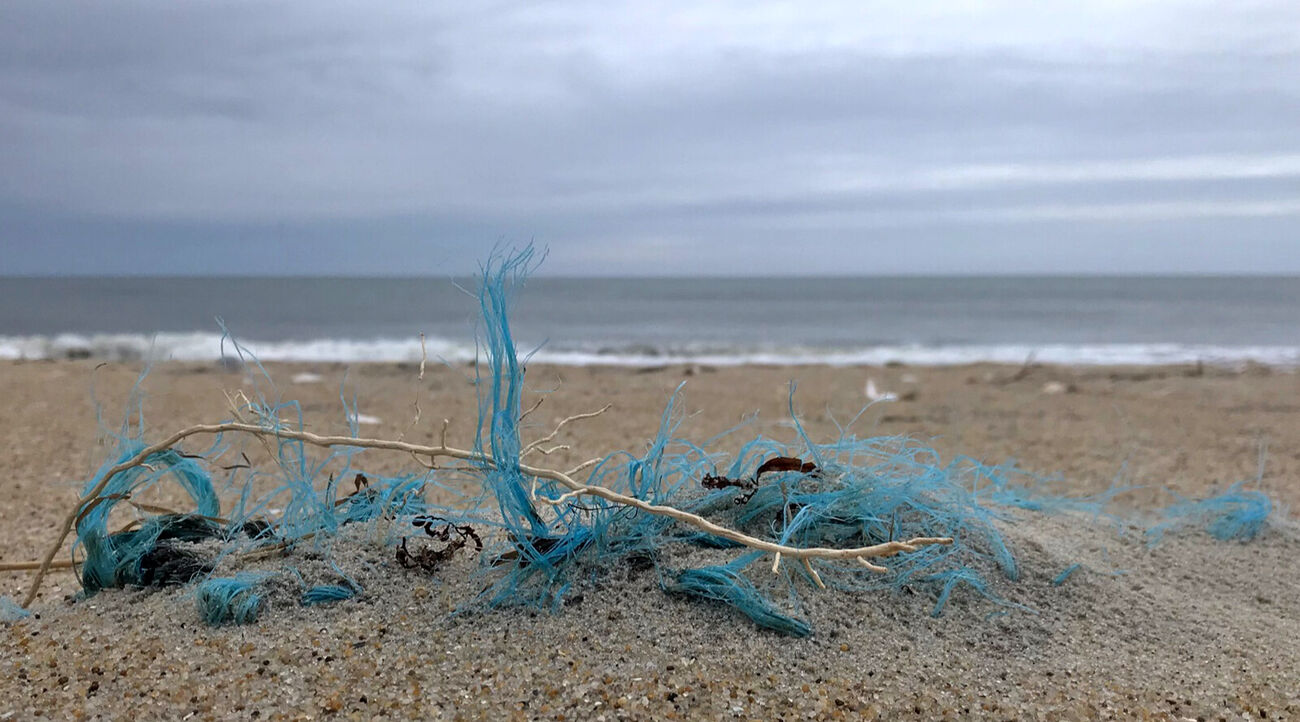
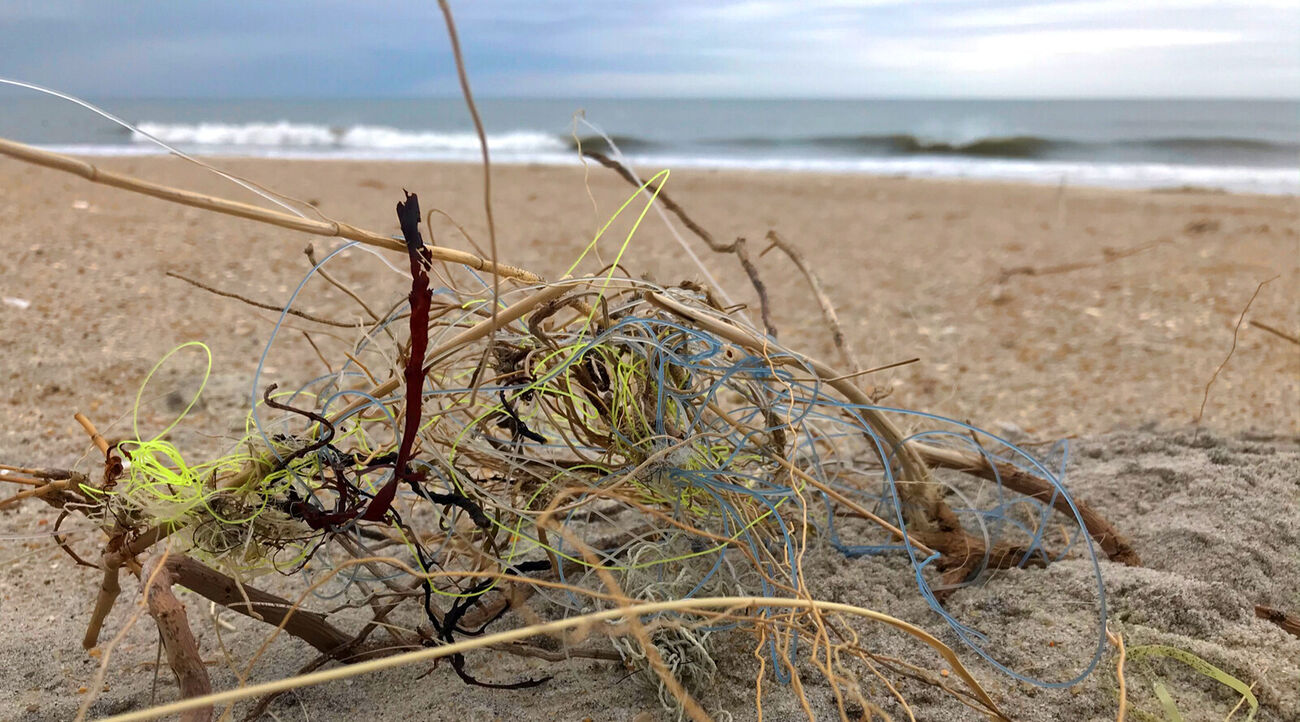 29% of all fishing lines used globally are lost each year. [5]
29% of all fishing lines used globally are lost each year. [5]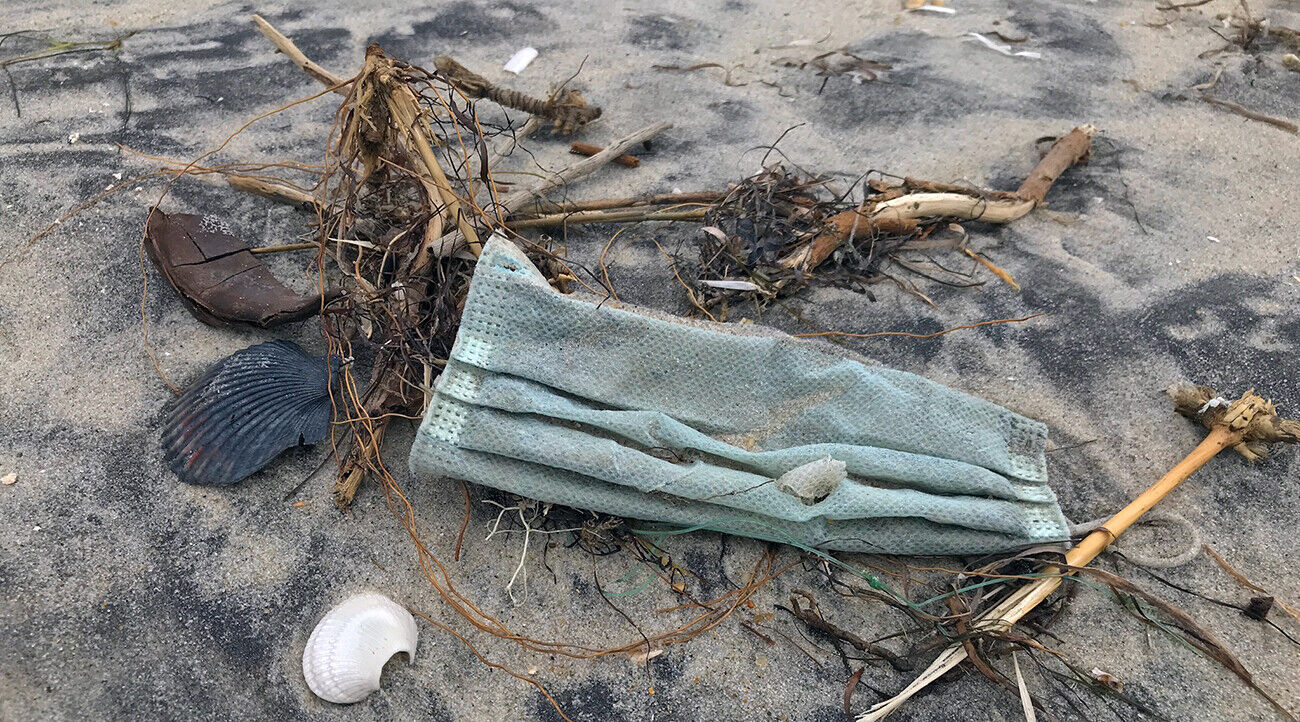 Covid-19 introduced a new trash danger.[6]
Covid-19 introduced a new trash danger.[6]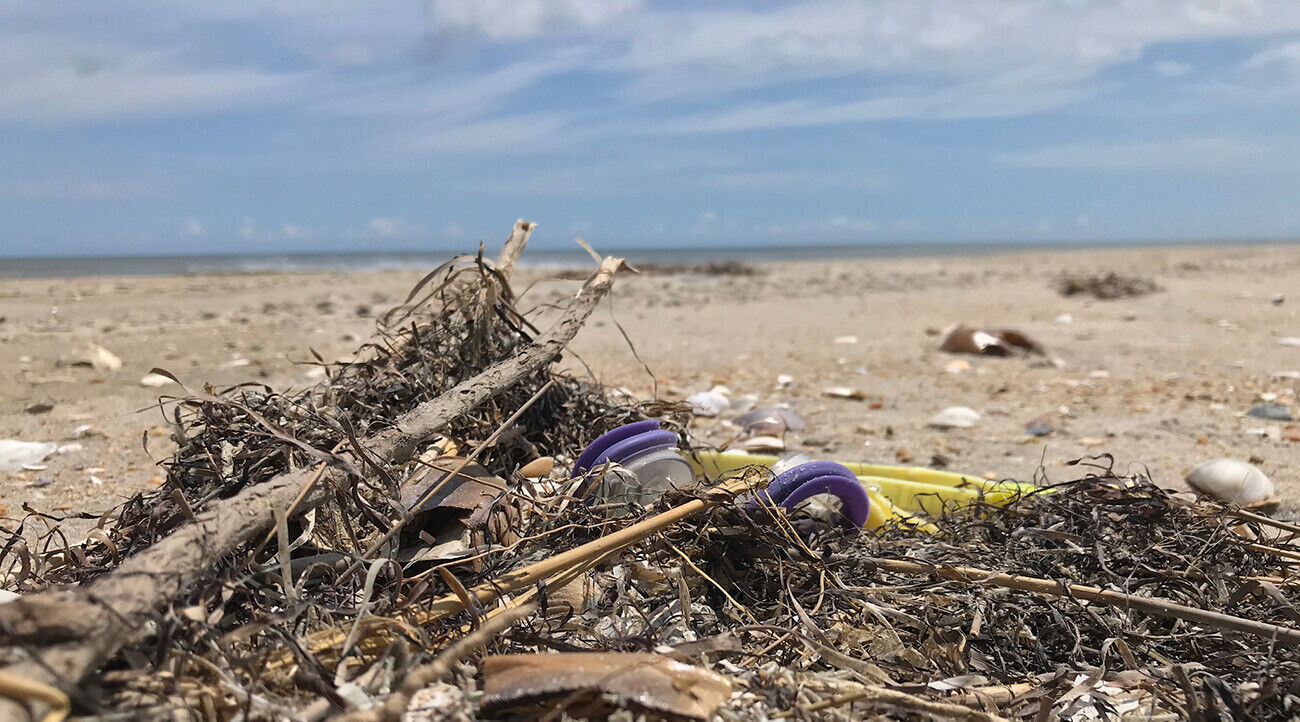 Plastic is killing more than 1.1 million seabirds and animals every year.[7]
Plastic is killing more than 1.1 million seabirds and animals every year.[7]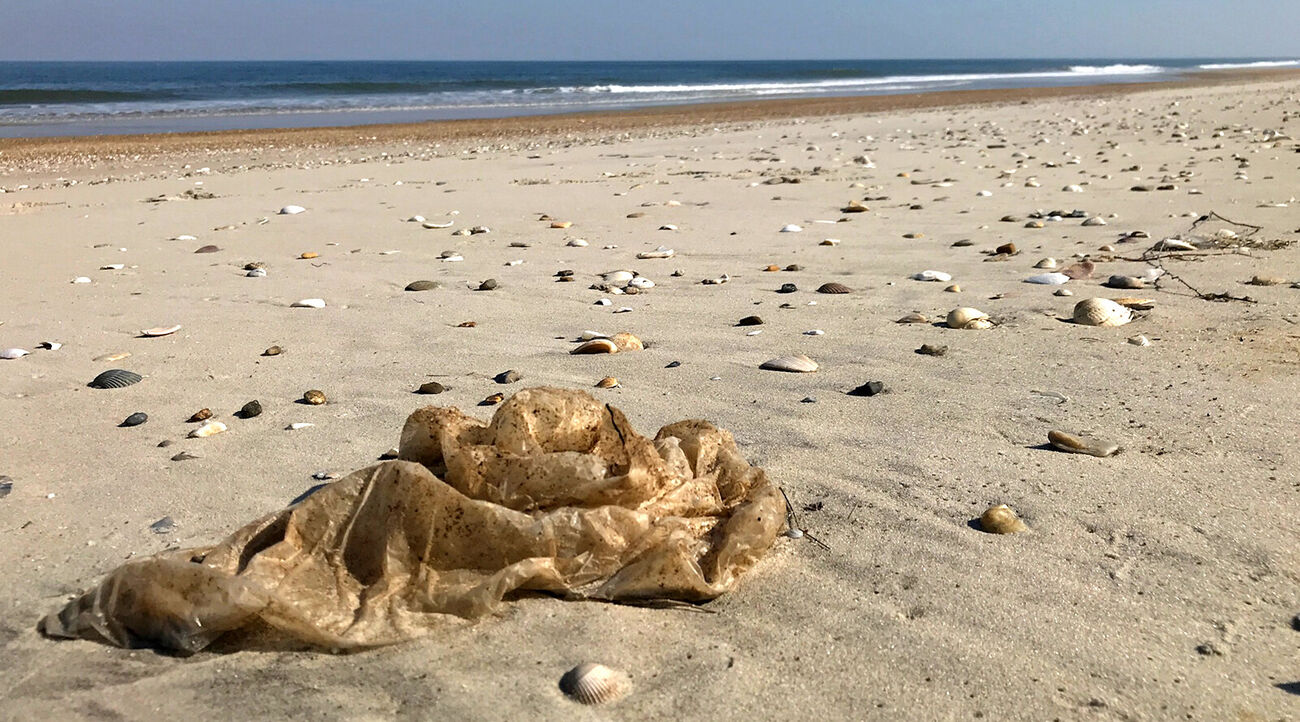 Turtles can mistake plastic bags for jellyfish.[8]
Turtles can mistake plastic bags for jellyfish.[8]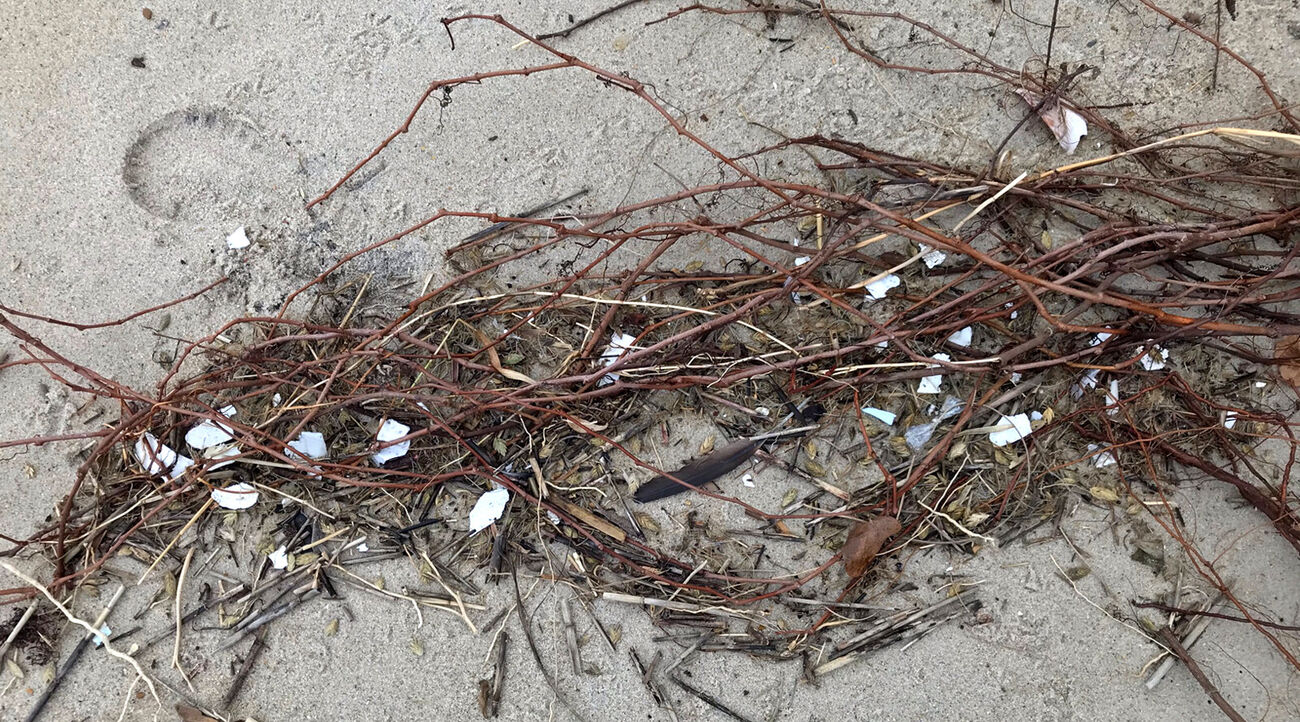 Styrofoam products easily break apart into small pieces that can choke animals.[9]
Styrofoam products easily break apart into small pieces that can choke animals.[9]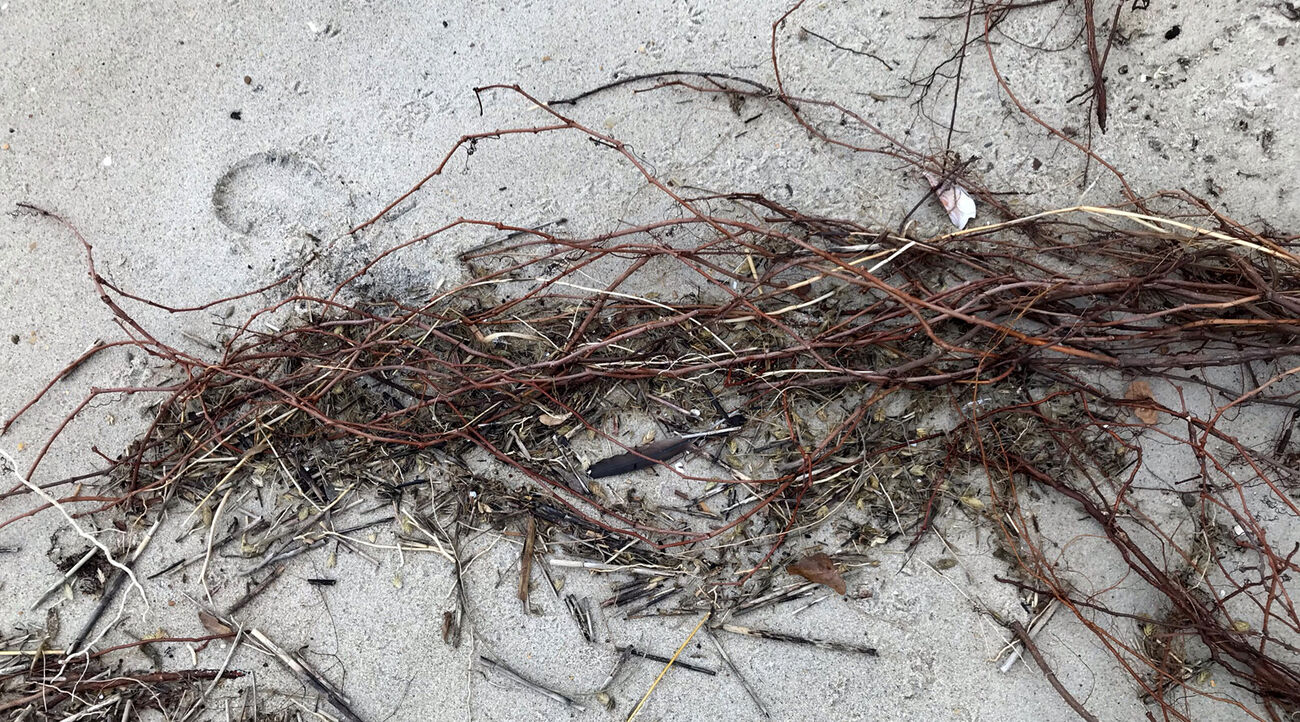 After beach cleaning!
After beach cleaning!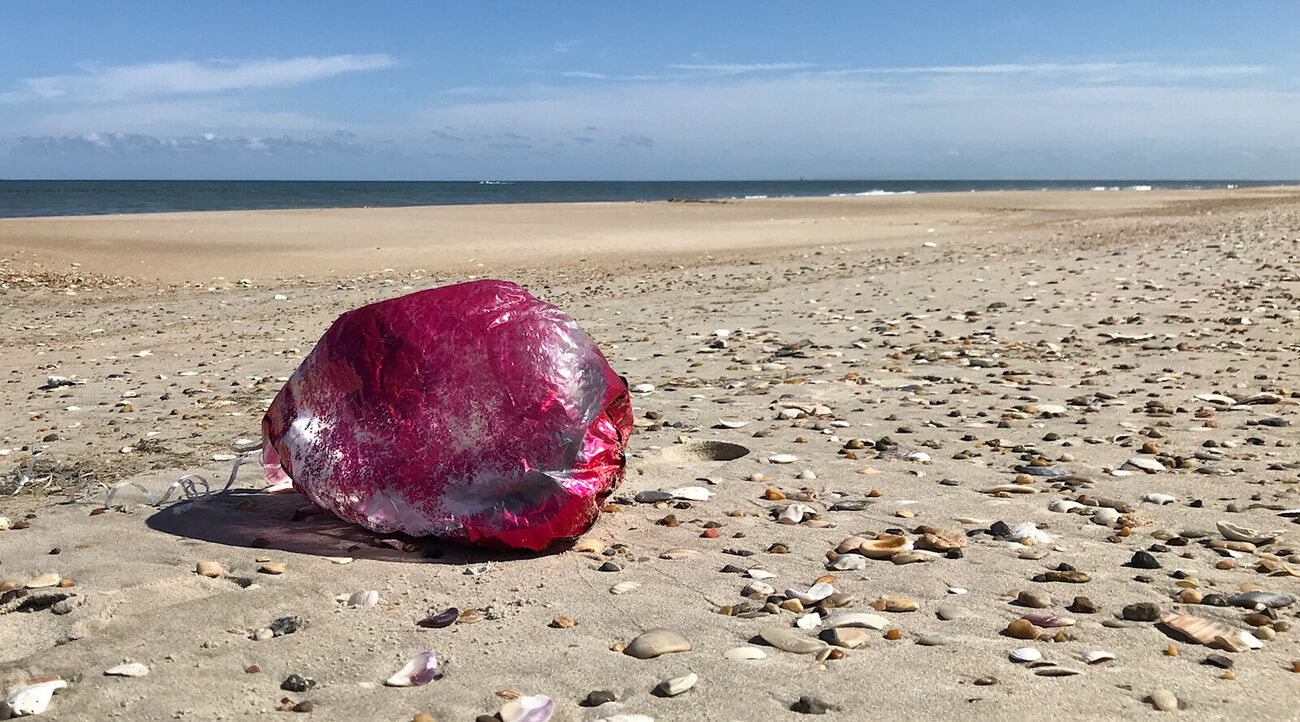 Balloon ribbons or string can entangle an animal that comes in contact with it, also causing a painful death.[10]
Balloon ribbons or string can entangle an animal that comes in contact with it, also causing a painful death.[10]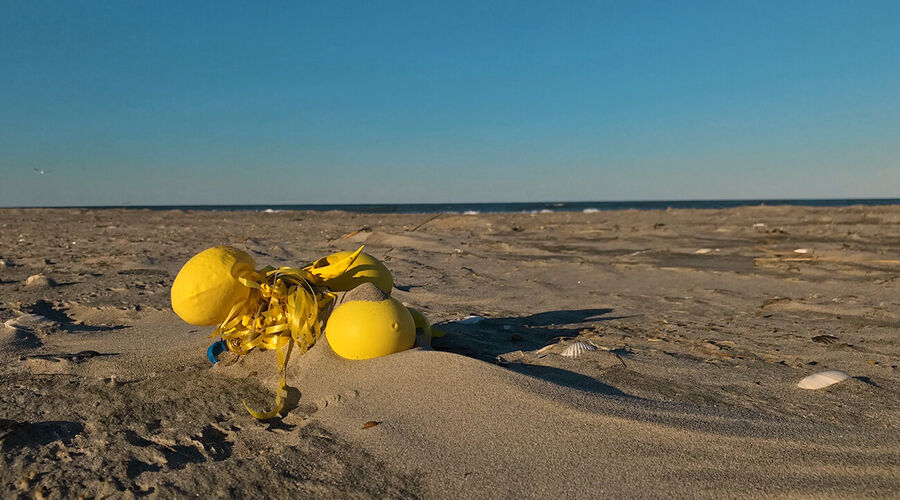 All released balloons return to Earth as litter.[11]
All released balloons return to Earth as litter.[11]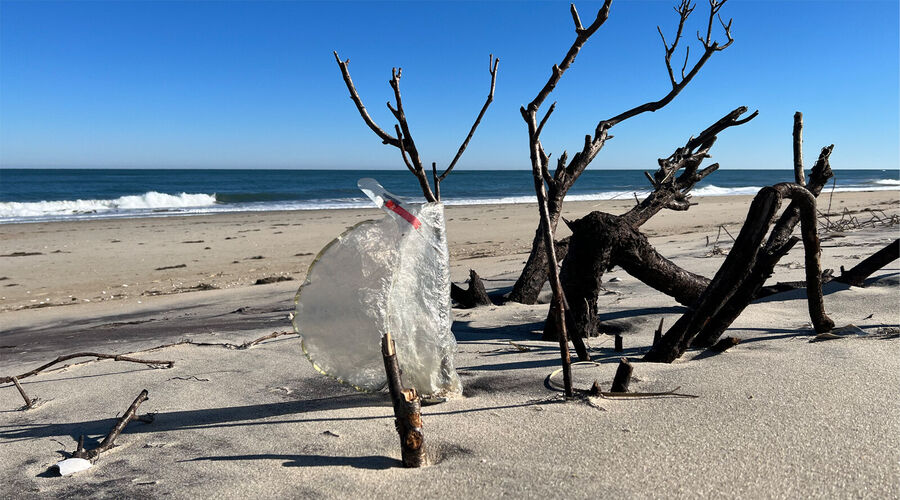
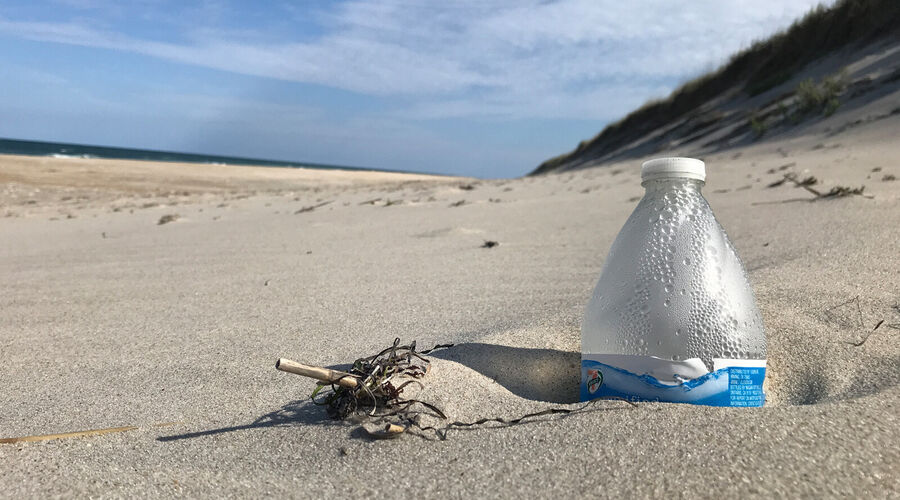 It is estimated that in the year 2050 there will be more plastic than fish in the ocean.[12]
It is estimated that in the year 2050 there will be more plastic than fish in the ocean.[12]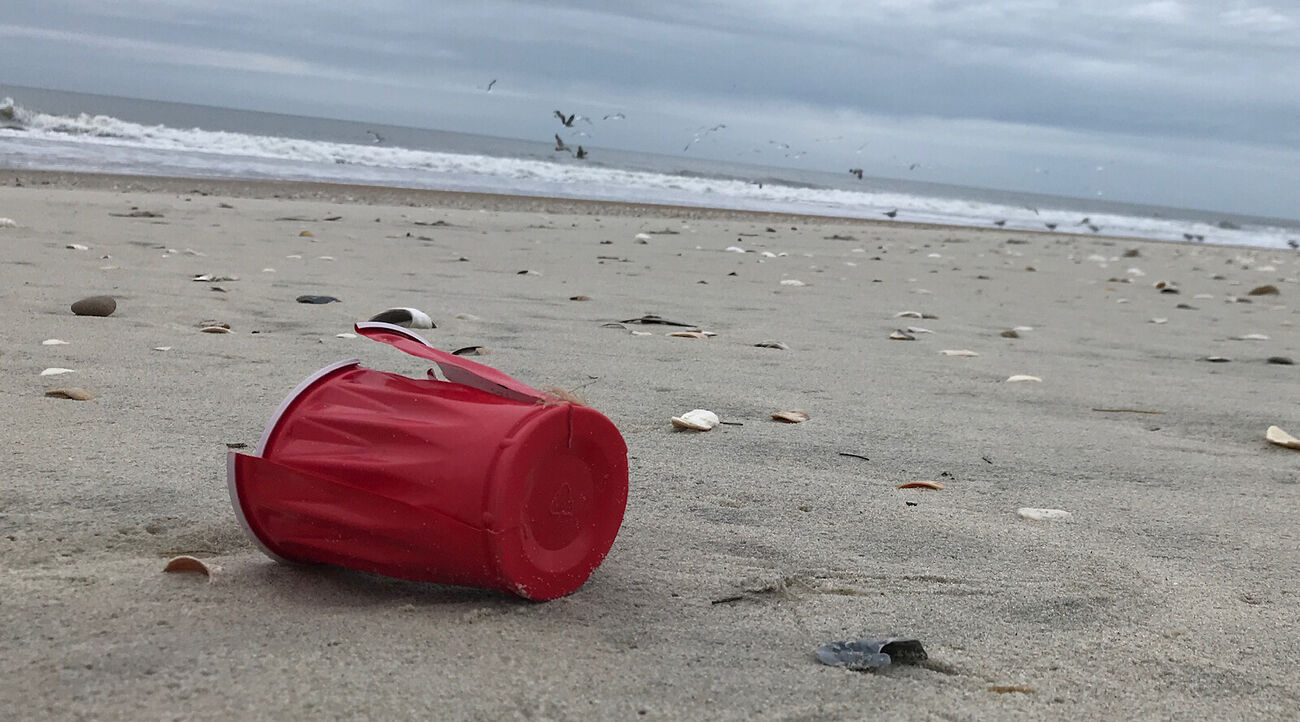 More than 40 percent of plastic is used just once, then tossed.[13]
More than 40 percent of plastic is used just once, then tossed.[13]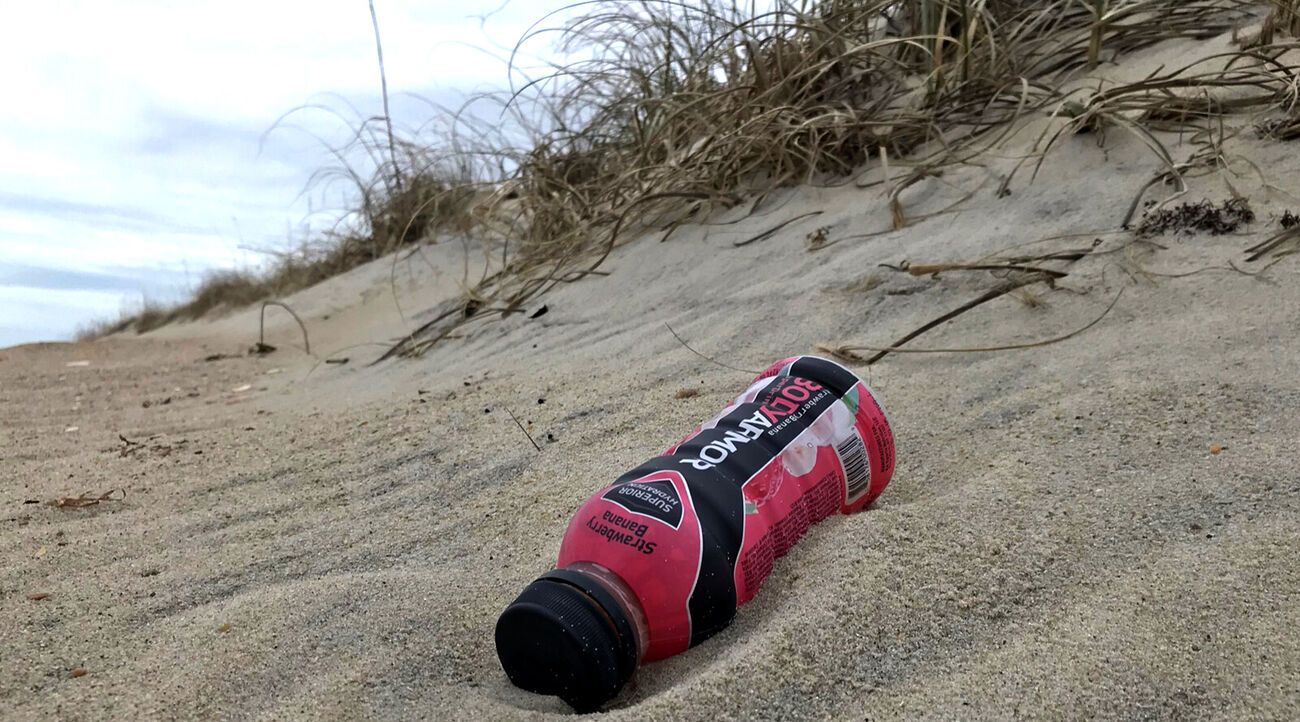 It takes at least 450 years just for one plastic bottle to break down in the ground.[14]
It takes at least 450 years just for one plastic bottle to break down in the ground.[14]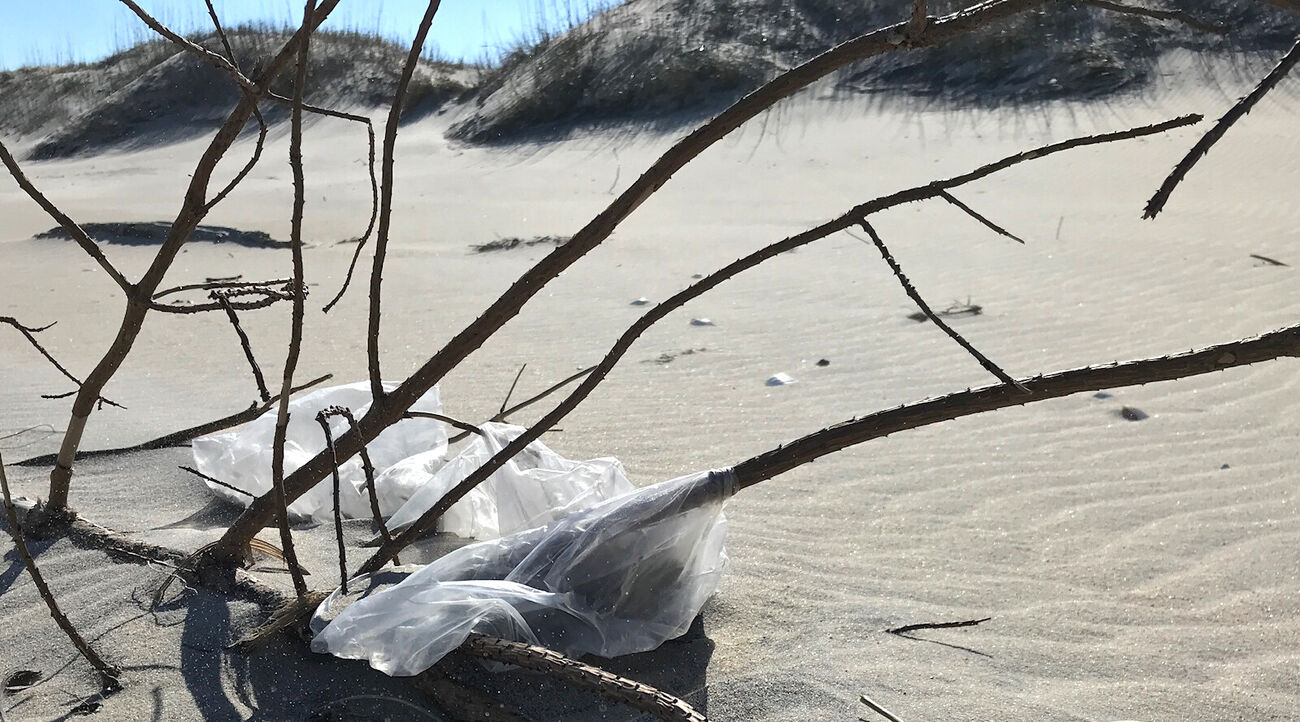 The average American throws away approximately 185 pounds of plastic per year.[15]
The average American throws away approximately 185 pounds of plastic per year.[15]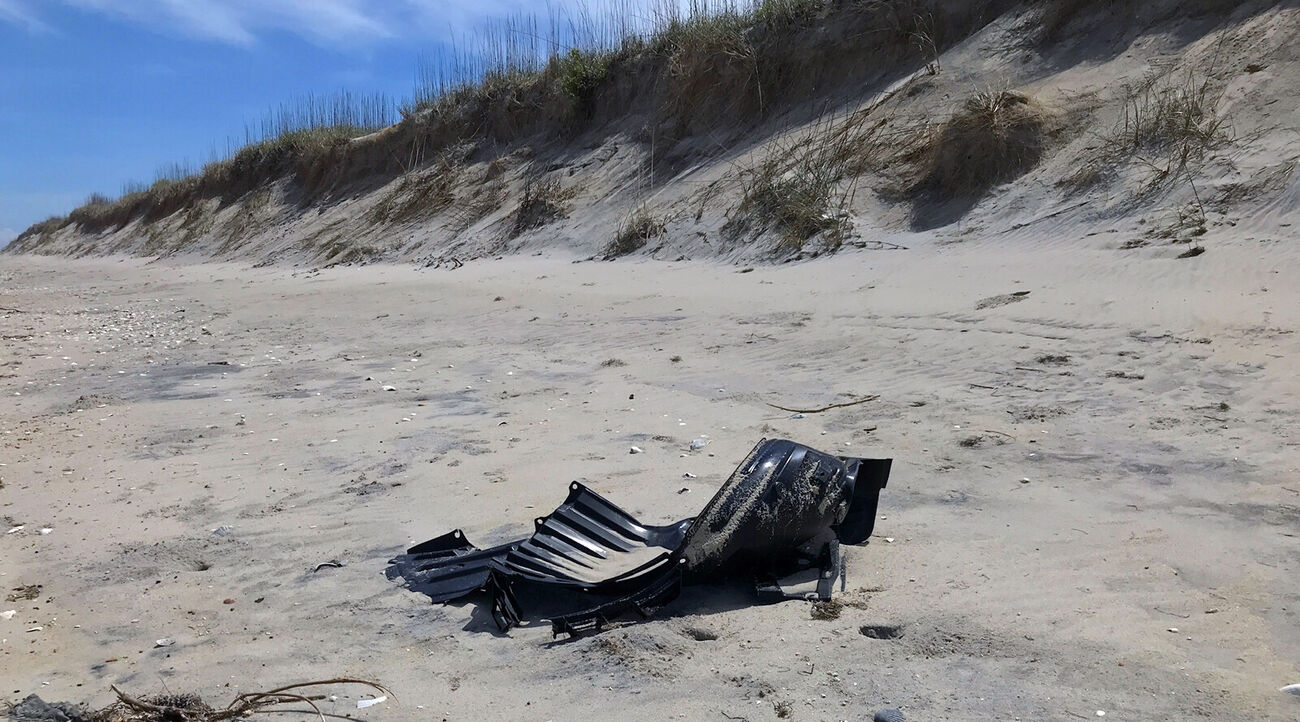 Nearly every piece of plastic ever made still exists today.[16]
Nearly every piece of plastic ever made still exists today.[16]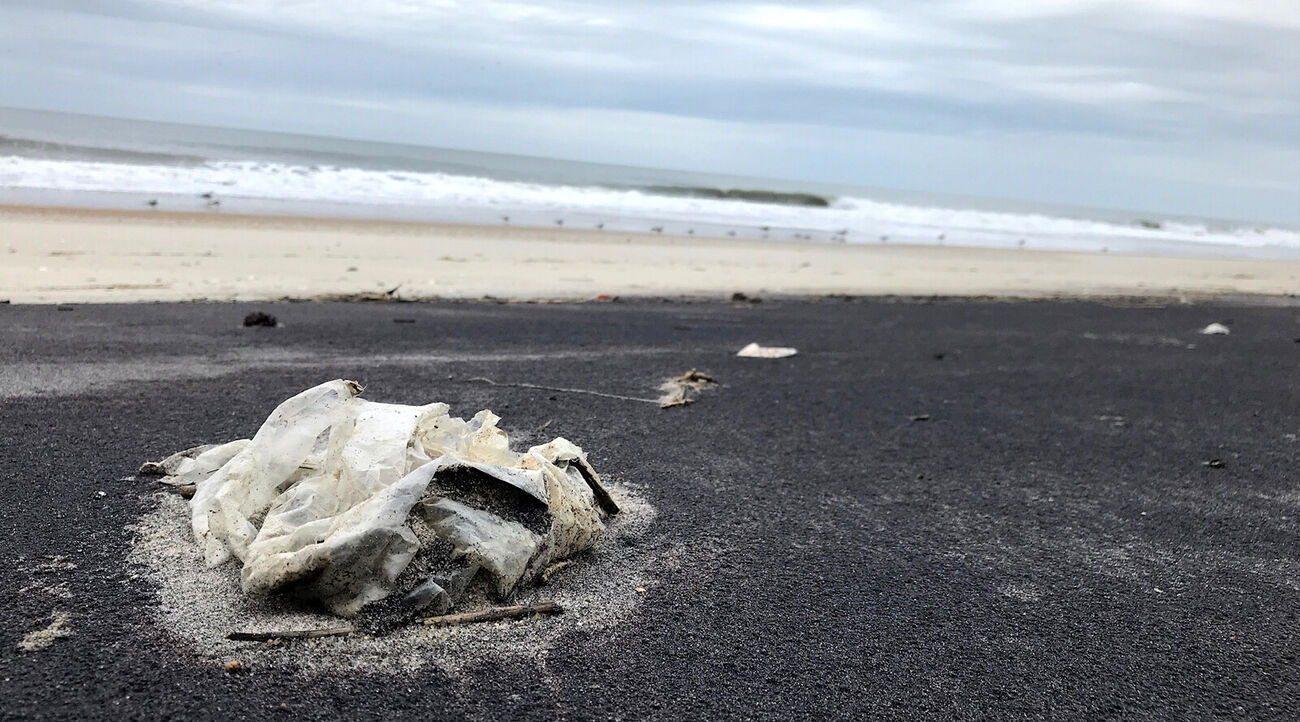 Americans use an average of 365 plastic bags per person every year. In Denmark the average is four.[17]
Americans use an average of 365 plastic bags per person every year. In Denmark the average is four.[17]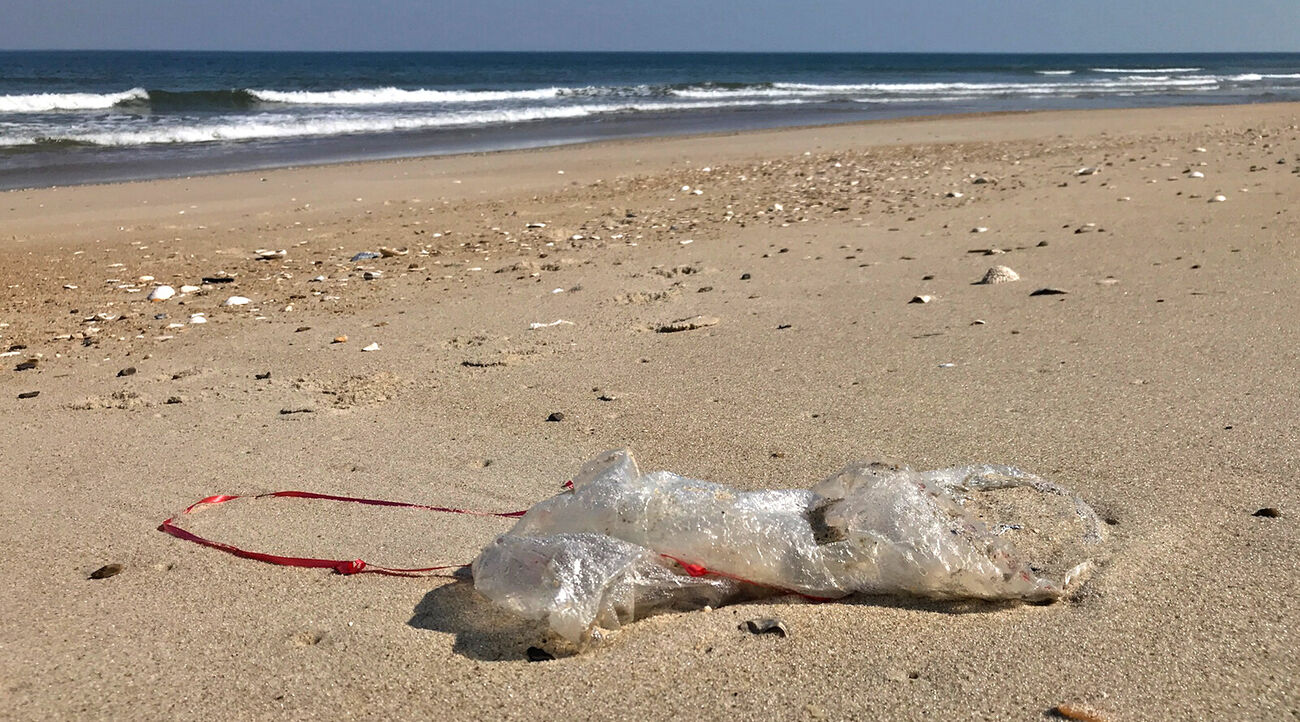 Some 700 species of marine animals have been reported to have eaten or become entangled in plastic.[18]
Some 700 species of marine animals have been reported to have eaten or become entangled in plastic.[18]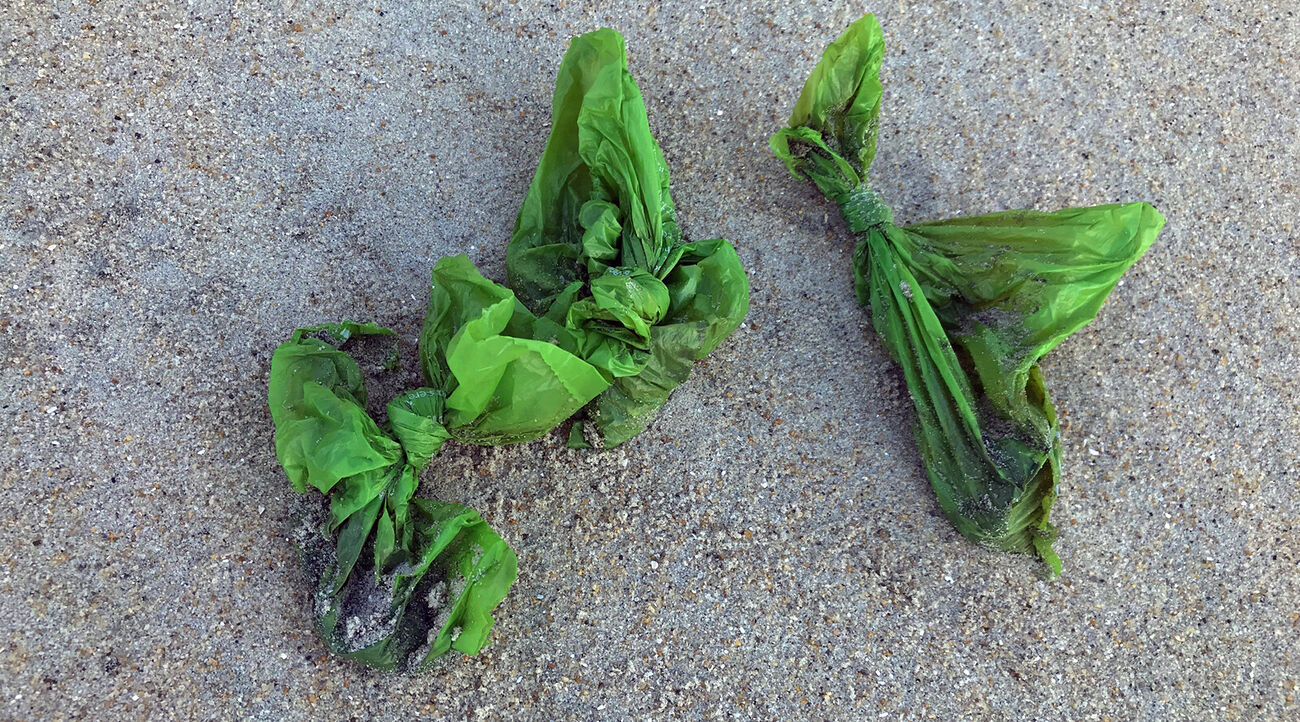 Please...cleaning up after your dog also means taking it with you!
Please...cleaning up after your dog also means taking it with you!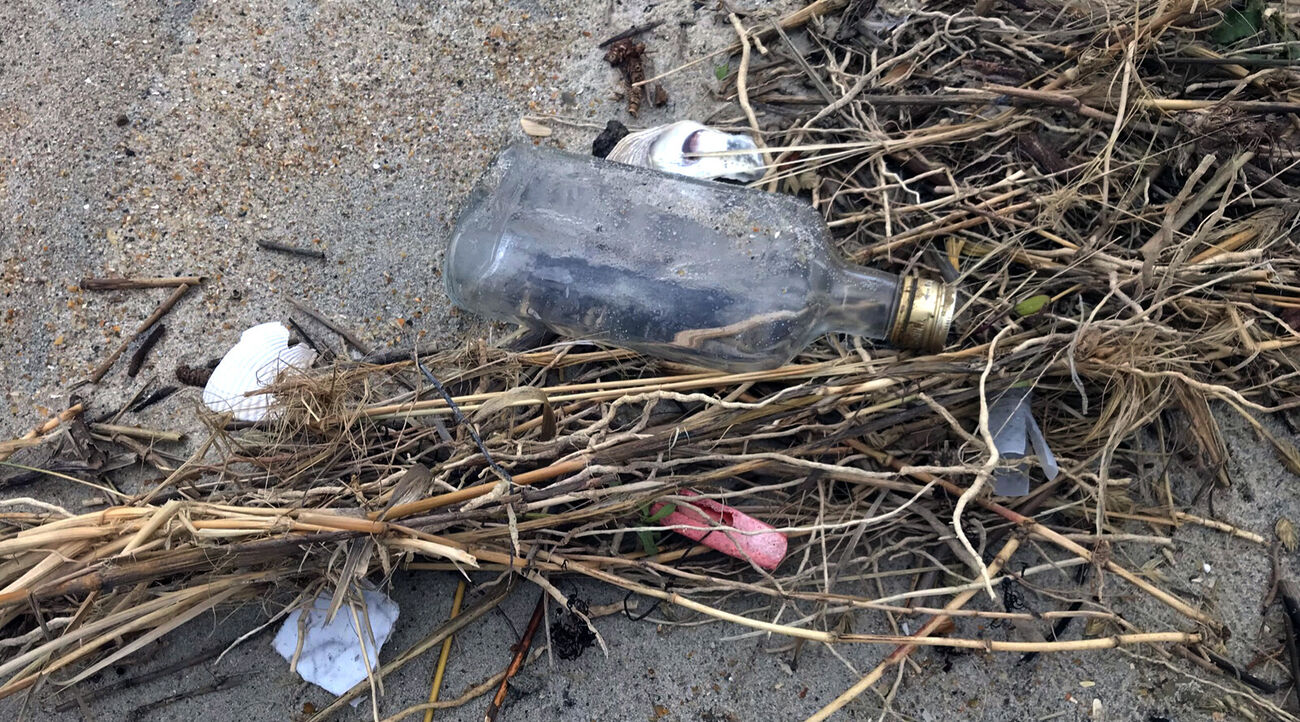 By 2050, virtually every seabird species on the planet will be eating plastic.[19]
By 2050, virtually every seabird species on the planet will be eating plastic.[19]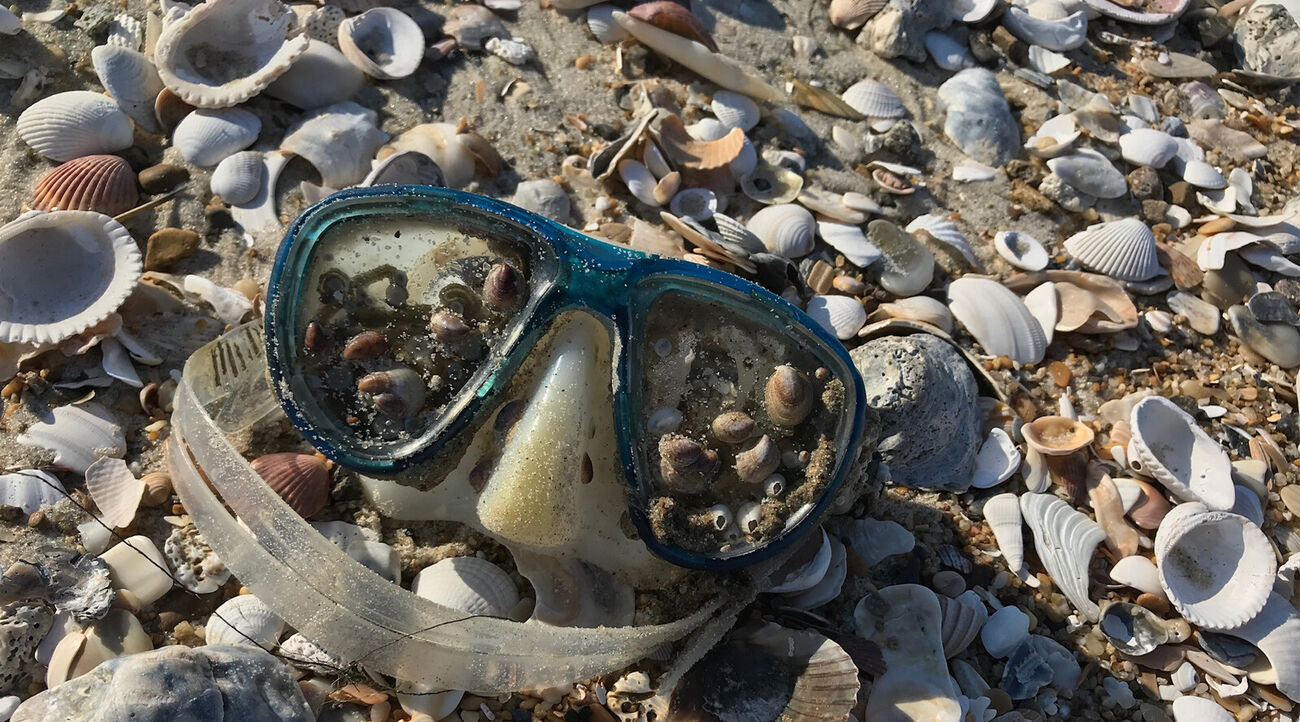 Plastic debris in the ocean can become coated with algae and other marine microbes that produce a chemical scent, which sea turtles, seabirds, fish and other marine life associate with food.[20]
Plastic debris in the ocean can become coated with algae and other marine microbes that produce a chemical scent, which sea turtles, seabirds, fish and other marine life associate with food.[20]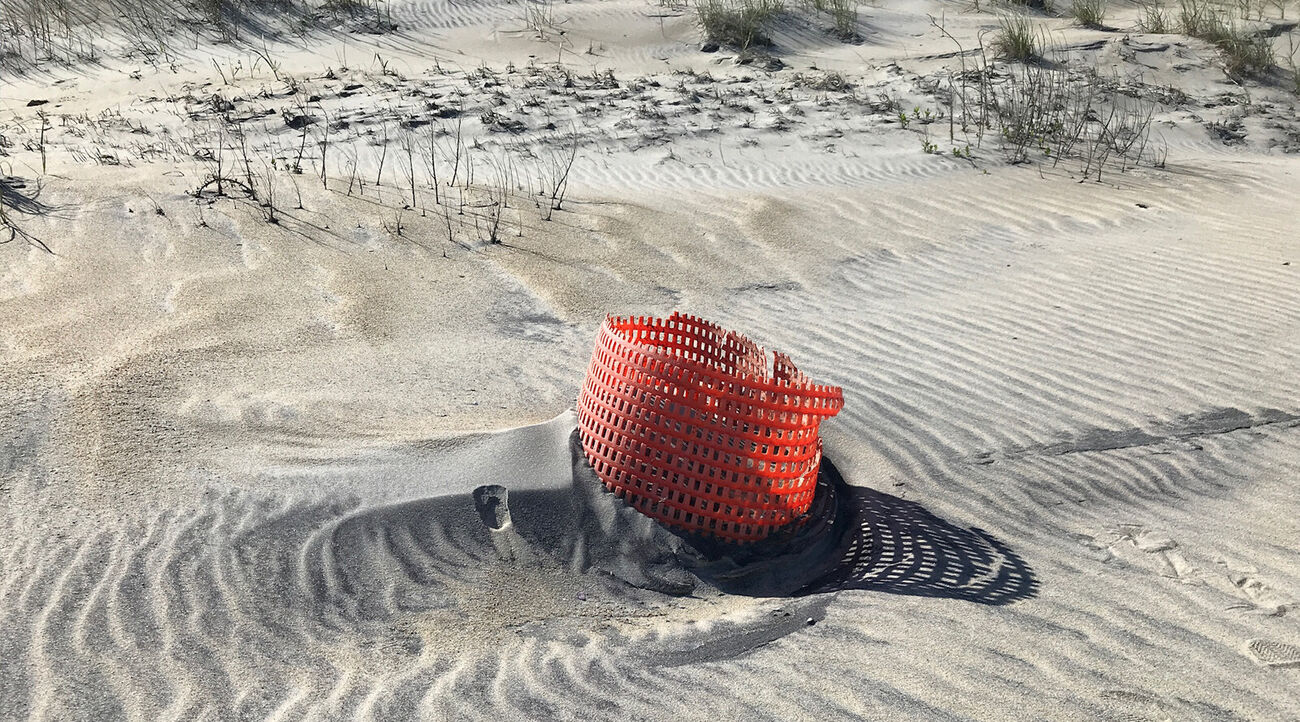 Estimates for how long plastic endures range from 450 years to forever.[21]
Estimates for how long plastic endures range from 450 years to forever.[21]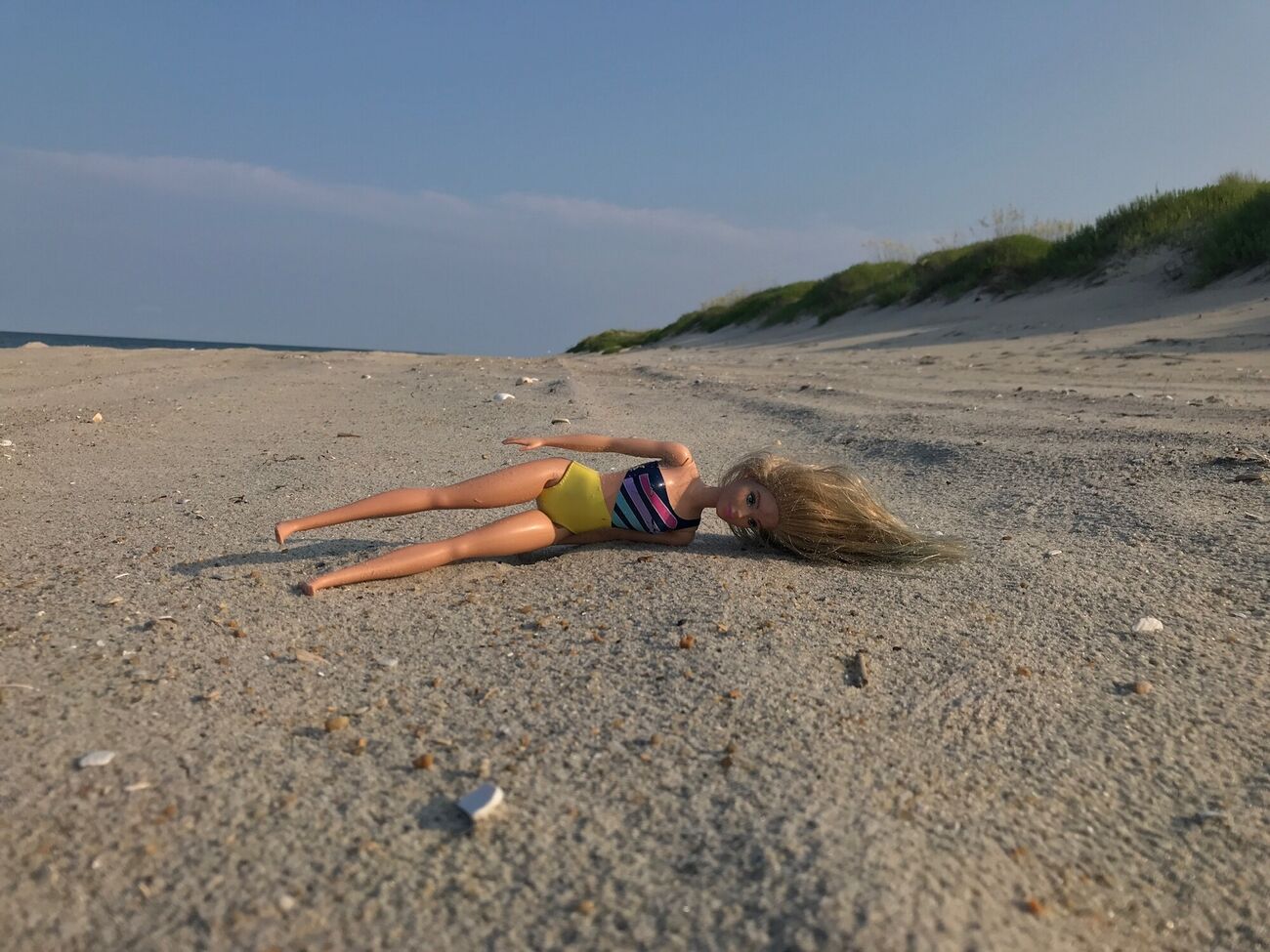 Barbie is plastic - she'll be around forever.
Barbie is plastic - she'll be around forever.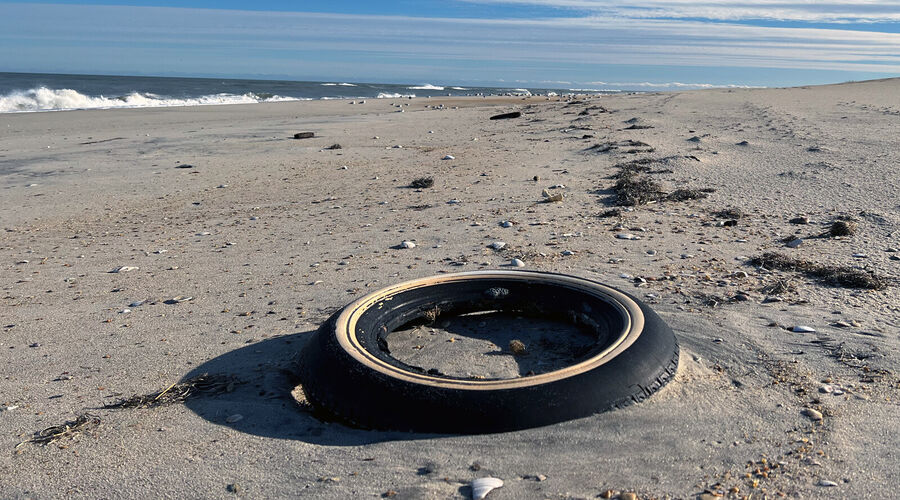 One study found that tires are the second-largest source of primary microplastic pollution in the ocean.[22]
One study found that tires are the second-largest source of primary microplastic pollution in the ocean.[22]
MAILING LIST
I'm interested in hearing about upcoming Outer Banks Beach Cleanups. Please add me to your email list.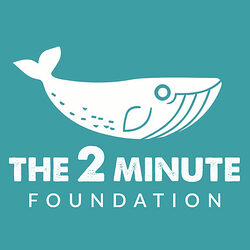
COMMUNITY
There are so many others doing amazing things and making a difference. You can too. It's OK to start small... the important thing is simply to start. To help you get started we've included a small list of people and organizations to educate and hopefully inspire you. Get Started! ⋙

2 Minute Foundation - "To inspire people to take two minutes out of their day to clear up the world's beaches, oceans, parks, streets and open space."
©2021 beachpreserver.org
Leave it better than you found it.

